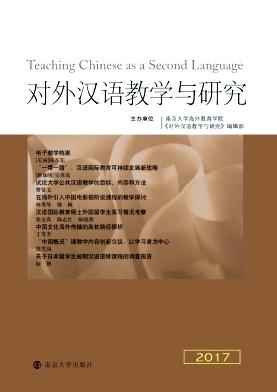Early Bidialectal Maintenance among Chinese Heritage Learners in Canada
引用次数: 1
Abstract
Research on Chinese heritage-language maintenance has predominantly focused on Mandarin as the default mother tongue and has largely ignored learners’ dialects or language varieties. As a result, we know little about dialect speakers’ beliefs and practices of maintaining their language varieties other than Mandarin, particularly in the home domain. Using family language policy (FLP) as the theoretical framework, this multiple case study examined six Chinese families’ beliefs and practices in early bidialectal (Mandarin and dialect) maintenance over three years when their children moved through kindergarten to Grade 3. Findings indicated that parents subscribed to the dominant language ideologies and placed their dialects at the bottom of the language hierarchy. However, the parents differed in their beliefs in the value of their dialects; and families who celebrated bidialectalism actively maintained their dialects while those who did not gradually gave up on passing their dialects to their children, even when grandparents were involved in the maintenance efforts. The findings have important implications for supporting and achieving bidialectalism in immigrant countries.加拿大华人文化遗产学习者的早期双方言维持
关于中国传统语言维护的研究主要集中在作为默认母语的普通话上,而在很大程度上忽视了学习者的方言或语言变体。因此,我们对方言使用者的信仰和保持普通话以外的语言多样性的做法知之甚少,特别是在家庭领域。本研究以家庭语言政策(FLP)为理论框架,考察了六个中国家庭在孩子从幼儿园到三年级的三年中,在早期双方言(普通话和方言)维护方面的信念和实践。研究结果表明,父母认同占主导地位的语言意识形态,并将自己的方言置于语言等级的最底层。然而,父母对方言价值的看法不同;那些推崇双方言的家庭积极地保留着自己的方言,而那些不这么做的家庭则逐渐放弃了将方言传给孩子,即使祖父母也参与了维护工作。研究结果对支持和实现移民国家的双方言主义具有重要意义。
本文章由计算机程序翻译,如有差异,请以英文原文为准。
求助全文
约1分钟内获得全文
求助全文

 求助内容:
求助内容: 应助结果提醒方式:
应助结果提醒方式:


